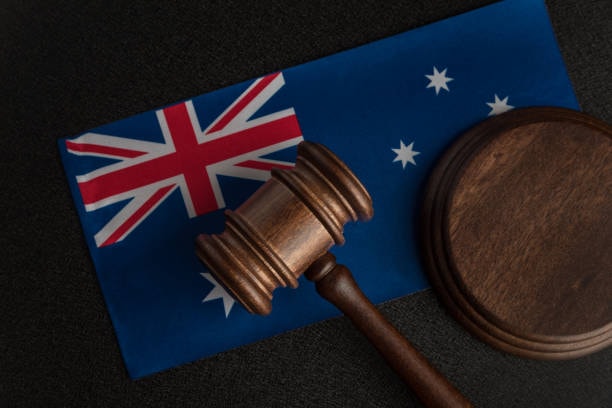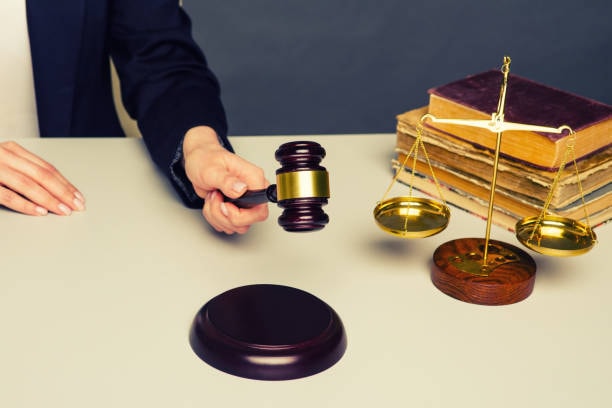The District Court Act 1973 sets out the District Court NSW and the rules of its civil and criminal jurisdiction. It is the largest trial court in Australia and is the middle court between the Local Court and the Supreme Court and the middle court between the Local Court and the Supreme Court.
In this article we will look at the key provisions of the District Court Act, the types of cases that are heard in this court, its civil and criminal jurisdiction, and how it differs from other NSW courts.
What is the District Court NSW?
Division 1 (Part 2) of the Act says the District Court NSW shall be a court of record. This means the district court is “a court whose acts and proceedings are permanently recorded. So they can punish for contempt of court.
The Act also says the Court shall have civil and criminal jurisdiction throughout the whole of New South Wales (NSW). Moreover, all civil and criminal law proceedings in the Court, and a Judge who shall be the Court shall hear and determine all business arising out of any such proceedings.
As to its composition, it shall have a Chief Judge and such other Judges as the Governor may from time to time appoint. A Rule Committee which shall compose of not less than 9 nor more than 10 members.
District Court NSW Jurisdiction
The District Court NSW deals with several types of cases, civil cases, criminal cases, compensation jurisdiction cases, Work Health and Safety Act cases, and appeals.
In the court’s civil jurisdiction, it can deal with all motor accident cases, regardless of the amount claimed and other claims from $100,001 to $1,250,000. But it can deal with matters over this amount if the parties consent. Other civil cases this court deals with are a breach of contract, personal injury, and defamation.
In its criminal jurisdiction, the court can hear all types of criminal cases except murder or treason because it is the Supreme Court that must deal with those cases. The Local Court or Children’s Court can refer criminal cases to the District Court NSW. The court also deals with trials and sentence hearings of criminal cases.
For compensation jurisdiction cases, it is usually the Workers Compensation Commission that deals with those cases. However, some particular disputes are transferred to the district court in its residual jurisdiction. This includes disputes involving:
- The Police Act 1990 in relation to police officers “hurt on duty” and the Police Regulation (Superannuation) Act 1906 in relation to the payment of superannuation benefits to police officers.
- Payment under the Police Regulation (Superannuation) Act 1906 paid to STC (the SAS Trustee Corporation continued under the Superannuation Administration Act 1996 and special risk benefits payable by the Commissioner of Police.
- The Workers’ Compensation Act 1987 in relation to workers in or about a coal mine.
- The Workers Compensation (Dust Diseases) Act 1942.
- The Sporting Injuries Insurance Scheme.
- The Workers’ Compensation (Bush Fire, Emergency & Rescue Services) Act 1987.

The Maria Restuccia v Workers Compensation (Dust Diseases) Board Case
This case is about Dominic Restuccia who died on 28th May 1999. The cause of death was lung cancer. The medical certificate said metastatic carcinoma of the lung and the medical experts agreed it was non-small cell or large cell carcinoma with features of a poorly differentiated adenocarcinoma.
However, their smoking history blocks compensation claims like this. For this case Judge Chris Geraghty of NSW’s Compensation Court said causation is a question of fact and it’s a conclusion based on the dictates of experience.
So in this case Judge Geraghty found that based on the facts the deceased’s long history of asbestos exposure in various conditions contributed to the progression of his lung cancer.
Furthermore more likely than not two factors—cigarette smoking and asbestos inhalation—caused or contributed to the lung cancer that resulted in Dominic Restuccia’s death. They didn’t act in isolation, they worked together to create a powerful synergy.
District Court NSW: Alternative Dispute Resolution
The Sydney District Court has a court mediation program for civil cases listed in Sydney. This program uses assistant registrars as mediators and is free and potentially faster way to resolve disputes.
A mediation session is an organised in-person meeting with all parties to the dispute and one or more mediators. Can be voluntary or court-ordered. Instead of waiting for a judge to make a decision after a court hearing. Through mediation, parties can consider more options to resolve their differences than a judge might.
Assistant registrars are court officials who act as mediators. They facilitate communication between the parties to a civil case. There is no fee for the mediation itself or for the assistant registrar’s mediation services. However, parties may still incur costs for their legal representation.
The aim of ADR is to guide the parties towards a mutually acceptable resolution without a full court trial. The court considers factors like the financial situation of the parties, potential legal costs exceeding the claimed amount and the likelihood of settlement before referring a case to the program.
District Court NSW vs Other Courts
The NSW District Court is in the middle of the NSW court hierarchy. It handles matters more serious than the Local Court but less complex than the Supreme Court.
The Local Court deals with minor criminal offences, summary matter, and civil claims under $100,000. Magistrates sit and there are no juries. The District Court deals with serious criminal offences (except murder and treason), appeals from lower courts, and civil claims up to a specific amount (currently $1,250,000). Judges sit and juries are used in criminal trials.
The highest court in NSW deals with the most serious crimes, complex civil disputes with no limit and appeals from lower courts. Judges sit and juries are used in some cases.
In short, the District Court handles a broader range of cases with an emphasis on trials and when possible settlements. This Court is the middle ground between the Local Court and the Supreme Court.

Get Legal Representation Today
Our experienced lawyers at JB Solicitors can represent you in court. We can also negotiate with the NSW Civil and Administrative Tribunal, mediations, or with legal authorities. We have the skills to understand court rules and procedures regarding criminal matters. To have a deeper understanding of the law, case precedents, and the courtroom protocol, contact our Sydney criminal lawyers today.
